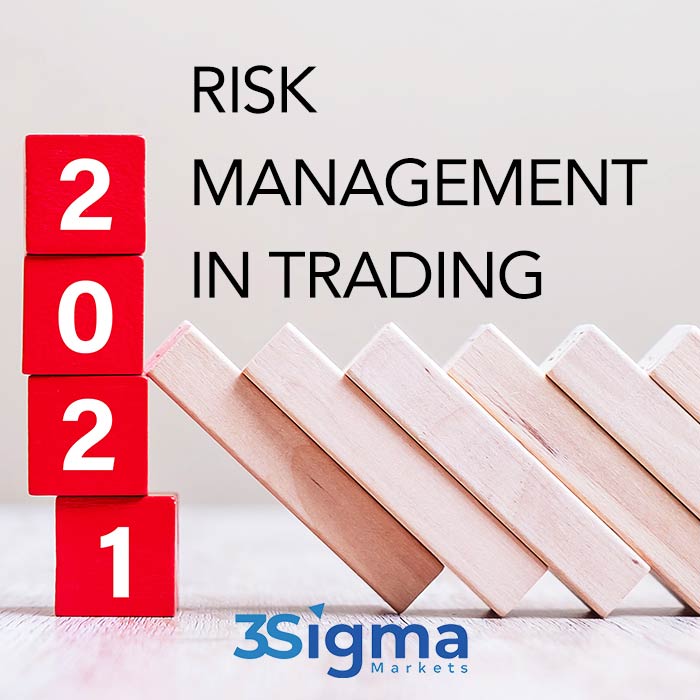Trading has highs and lows. To become a successful trader, you first need to improve your skills, diving head first into the world of trading, stop losses, all time highs and all time lows. We have compiled a list of 10 essential tips to become a successful trader below!

-
Treat trading like a business
The most successful traders treat their trading like a business making sure to protect their capital, use leverage effectively and plan how they grow. They use risk management techniques to limit their capital exposure to the markets and they plan how much they will lose on every trade and what that will mean for their account. They avoid the risk associated with emotional trading and use a trading plan.
Treating trading like a business means using leverage in a safe way to grow their capital and become more effective in building profits. Leverage is an effective tool when used correctly, just like a business getting a business loan. It can be used to increase profits but must be factored into a risk management plan.
-
Manage expectations
Managing expectations is a key requirement to plan how a trader will grow their capital and their account. Some traders start trading with an idea that they will double their account continually and be rich in a year. They fail to realise that they are risk their capital and can suffer losses. Frustration can build when they fail to realise their unrealistic targets and this can lead to greater losses.
The key is to set realistic goals and expectations and to factor in setbacks as well as time to learn and develop. The path to success is full of pitfalls but these can be used as opportunities to learn and grow as a trader. Many mistakes are generally made along the way but as long as the trader is expecting these mistakes then they can be seen in a positive light.
-
Sometimes it is better not to trade
Sometimes, when the market is going nowhere or when there is a major event coming up, it can be better to step away from the markets and the trading platform. Turning off the computer can end up saving your account in times like this. The market may not always offer trading opportunities to enter on your setup and traders who are impatient can end up forcing trades that have a low probability of success.
FOMO or fear of missing out can have a detrimental impact on traders, leading them to enter trades that end up losing instead of acknowledging that they have missed the entry and stepping away from the market. Traders should also step away from the markets after a series of losses in order to break the cycle of losing. Sometimes this can lead to clarity that something is not working for the trader and when the pressure to trade is taken away they can fix the issue.
-
Look after your health
This may seem like it is irrelevant to trading but in a way there is nothing more important. Trading is a stressful occupation and the trader must do everything they can to release and deal with that stress in a healthy way. The best way to deal with stress is to exercise. Whether this is a short walk, a swim or running a marathon is up to the individual trader. Martial arts can be very beneficial as they allow the trader to focus on developing discipline as well as exercising.
Sleep is of extreme importance to staying healthy and focussed during the trading day. It keeps the trader alert and allows the body and mind to heal. Just as necessary is eating a healthy balanced diet. A trader should aim for a balanced diet to have enough energy to trade during long sessions and to replenish the body’s fuel reserves. It is important that the traders gets the right balance of working and living, along with making time for family and friends so that they can succeed over the longer term as a trader.
-
Keep a trading journal
A trading journal is a good way of documenting your journey through the markets. Traders can use it to log their trades, their emotions and any insights they gain. These later points are the most important as your broker can supply you with a record of your trades. The journal is best used to conduct research into the traders psyche during a trading session. Important sessions can then be reviewed. A winning session can be used as inspiration in the depths of a future losing streak, and a losing session can be picked apart for mistakes.
It is useful to document new trading strategies and how the trader trades them. The first time a new strategy is used may not prove successful and the journal can give an insight into elements that can be improved upon. There are always opportunities to lean and develop in the markets and in a traders methodology and a journal can save valuable time in finding these opportunities.
-
Spend time learning
Very often time spent learning is seldom wasted. A trader will need to be open to constantly learning, researching and developing. The markets never stand still and as the old Wall Street line says, “money never sleeps”. There is always a new dynamic at play in the markets and they are an extremely kinetic environment. Traders must endeavour to stay ahead of the game or at the very least keep pace with it.
This means that a trader must constantly read up on what factors are influencing the markets, be they political, economic or market centric in nature. Traders must then research and learn the markets patterns and behaviours. This can mean many hours of reading and sitting in front of charts. Technical analysis is a very broad topic and most traders will only scratch the surface of many of its areas. Just doing this can take years of study and there is a saying that it takes 10 years to make a trader. This is in part because a trader will above all have to lean and understand themselves before they become consistently successful.
-
Focus on growth
Many traders fall into the trap of trading their account, constantly looking at their account balance and their profit and loss as it fluctuates with the markets whims. This generates emotions that cause the trader to close winners to early and let losing traders run. In fact the traders should be doing the very opposite, letting their winning trades run and closing losers as soon as possible. Most of those who open an account fail to do this and they end up joining the long list of prospective traders who are forced to give up.
Traders should instead focus on the percentages of their account and on the number of pips they accumulate. Focussing on the percentage gives a fixed and manageable target for the trader to aim for. Focussing on the pips takes the emotions out of trading and can even make trading more enjoyable as it becomes more of a game to try to win. There is nothing wrong with this, as long as the trader holds rigidly to their risk management rules.
-
Only trade with capital you consider surplus
Trading with capital or money that you need to pay for bills is a sure way to create unnecessary stress and part with that asset. Traders should never use the gas money or the rent to fund their account. The emotions at play in the traders mind as the rent day approaches tend to multiple by the hour and the stress created leads the trader to takes more and more risk before they have to withdraw the money. Worse still if the trader is hit by a series of losses, then they are always on the back foot and under pressure to come from behind and regain their loss.
Traders should only fund their account with capital that they are happy to part with. The traders should accept that this money is already gone and attempt to take the emotion out of the situation. This can be more difficult for a trader who is depending on their trading account to pay bills. Many seasoned traders try to develop additional sources of income in order to remove this stress. It becomes even more important for a trader in this scenario to maximise their winnings.
-
Find an edge
Successful traders find and develop an edge in the market so that they can get on the right side of the probability equation. They do this by studying the market and finding a pattern or strategy that can successfully help them achieve winning trades on a consistent basis. Having an edge in the market is a key factor is becoming a successful trader. Not only this, but there are some traders who use different strategies to trade in different market conditions. They may have a strategy for when the market is trending or consolidating. They may have a strategy for when the market retraces or they may have an edge for when the market tops or bottoms.
Traders must try to find their edge that they can be confident about and believe in. If a trader does not believe in their edge they tend to take profit too early in their trades. When a trader believes in the strategy they can let their winners run and even add to their winning positions because they are confident that their edge will work over a series of traders.
-
Follow the trend
The old saying in the market is that the trend is your friend and when traders can jump on board a strong trend, it can be an opportunity to create a spectacular winning trade. Many traders admit that there are some trades that make up the bulk of their winnings in a quarter or year and they are generally part of a trend following trade. When the market trends, it can be highly advantageous for the traders to piggy-back on the move.
Very often a trend will last far longer as anyone expects, particularly, for example, during a bull market in equities. These moves tend to last for years, where as bearish moves can often be sharp and short. Therefore bullish trends can give the trader more time to enter the market and employ a trend following strategy. Traders should try to capture the bulk of the move and not focus on when the market will turn as this can often be just a normal retracement.



